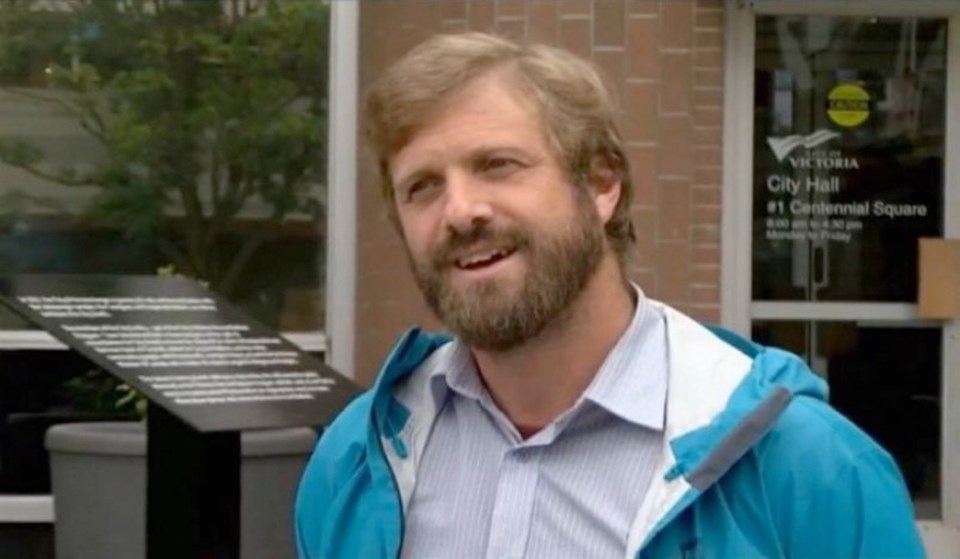Victoria Coun. Ben Isitt, who touched off a heated debate over councillors’ pay in recent weeks, acknowledged Friday that the issue is probably best left to previously scheduled reviews of council salaries and city governance set to begin in 2021.
In a briefing note that will go to council next week, Isitt lays out three possible options for the city to consider as part of the reviews, but he makes no recommendations.
“I think it was somewhat naive to think that we could discuss compensation before the governance review had taken place,” he said in an interview.
“Definitely many residents of the city are expressing support for looking at these things, but there’s also opposition.
“So I think the briefing note tries to lay out some of the issues and some of the factors that council and the public can consider when we get into the governance review.”
Isitt faced criticism from some quarters after he proposed tying councillors’ salaries to the median income of full-time city employees — except for police and firefighters. Such a change would have increased councillors’ remuneration from about $45,000 a year to more than $70,000.
Of the more than 5,000 people who took part in the city’s online budget survey, 86 per cent said they “strongly disagreed” with the proposal.
Isitt has argued that councillors are spending up to 60 hours or more a week on city business and his briefing note includes a breakdown of those duties.
He says Victoria councillors spend 10 to 20 hours a week in formal meetings; five to 20 hours reading reports in order to supervise city operations and spending; 10 to 20 hours responding to correspondence and telephone calls; five to 10 hours serving on boards and commissions; and five to 15 hours meeting with stakeholders.
Isitt writes that the volume of work and meeting schedules preclude Victoria councillors from holding regular jobs.
At the same time, he says, the current level of remuneration “falls substantially below the income expectations of many early-to-mid-career professionals who lack access to one of the following income subsidies: family wealth; business income; spousal income; pension income, subsidized housing through unearned real estate equity.”
As a result, Isitt says young professionals without access to one of those sources of income are under-represented on council, leading to a lack of diversity in decision-making.
Isitt says his analysis supports three possible policy directions.
“One is the status quo, which makes it very challenging to be a council member for people who are early to mid-career,” he said in an interview.
“The second option would be to scale back the scope of councillor duties to allow for regular outside employment. And the third option would be some sort of salary adjustment.”
He said the governance review is the most appropriate way to proceed, beginning with an analysis of councillors’ statutory responsibilities, followed by a conversation with the public about their expectations of councillors.
“Once there’s a clear sense of what councillors’ statutory responsibilities and what public expectations are, then I think turning to the question of compensation and considering whether or not the existing level is appropriate,” he said.
Coun. Geoff Young said in an interview Friday that public response to a pay hike for councillors has been “pretty clear” and he anticipates Isitt’s briefing note will be received as information without any action being taken.
“My suspicion is that when it comes to the council, nobody will actually move a motion for the increase in salary,” he said.
Young said if council does decide to increase councillors’ compensation at some point, it should happen a few months before the next election and be implemented following the vote.
Coun. Charlayne Thornton-Joe has made a similar point, saying she’s adamant that whatever council decides, any changes should apply to the next council, “so that we’re not voting for our own increase.”
Young said there’s no question that serving on council has become a time-consuming job. “Just the volume of communications that come in and invite or require a response is pretty significant.”
But he agrees with critics, such as the Greater Victoria Chamber of Commerce, who argue that council has expanded its workload and could make more efficient use of its time.
“I think there is some justice to the suggestion that people, like the chamber of commerce, have made, which is that our work is expanding to fill the time available,” he said.



